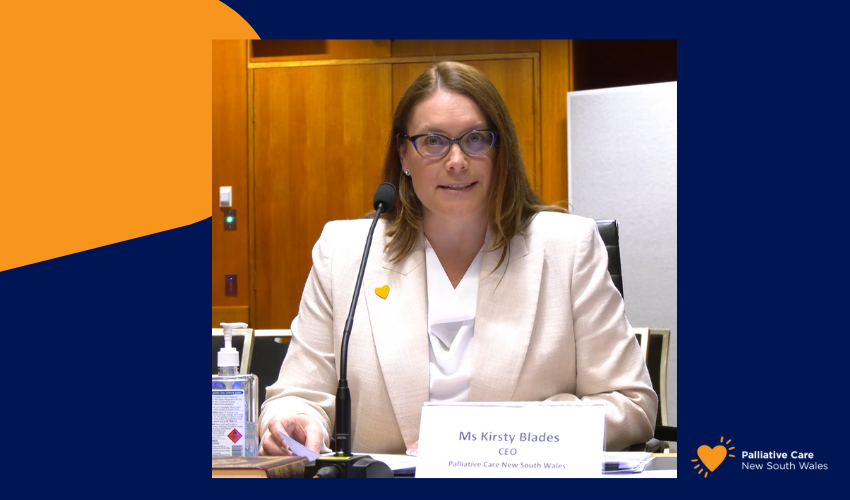On Friday 31 May, PCNSW President Felicity Burns and I participated in a public hearing into the progress on recommendations in this report from 2022: Report (nsw.gov.au). This report addresses health outcomes and access to health and hospital services in rural, regional and remote New South Wales. The report had 22 findings with finding 13 stating: “That there is a lack of palliative care and palliative care services in rural, regional and remote New South Wales.” The report had 44 recommendations with 2 (recommendation 23 & 24) related specifically to palliative care.
It was important that PCNSW attended this hearing to provide feedback to the committee. We reached out to our regional, rural and remote members whose feedback was invaluable in preparing for the hearing. We were given 2 minutes to deliver an opening statement and I thought I would share this with you to highlight the key messages we shared:
Palliative Care NSW Opening Statement
As a peak body, Palliative Care NSW is a leading voice and advocate for our members and the community, and today our President, Felicity Burns and I, can share that voice with you and some of the feedback we have received from those on the ground.
Finding 13 stated that there is a lack of palliative care and palliative care services in rural, regional and remote New South Wales. 2 years on, that statement remains the same, BUT there has been some progress. Sentiment continues to be though that the progress is slower than needed and is not keeping pace with the need, and as one member stated to me ‘we just continue to try and catch a runaway bus’. To meet current and future demand, the rate of progress needs to be accelerated.
We also asked our members about current service gaps and can talk to that in more detail. Positively, just over half of those we spoke to indicate that there are fewer service gaps than 2 years ago, while on the flip side 25% say there has been no change in service gaps in the last 2 years. This talks to the variances that can be felt from one LHD to the other, and from one region to another within the same LHD. It also highlights the importance of LHDs having a leadership team that supports a well-defined strategic focus on palliative care and end-of-life care if progress is to be achieved.
A key concern for those in rural, regional and remote NSW are workforce shortages directly impacting timely access to palliative care. When we spoke to our members 42% said workforce shortages had gotten worse, 33% indicated they were the same, with only 25% noting an improvement.
Finally, Australian Institute of Health and Welfare data newly released has confirmed that those in major cities are more likely to receive timely specialist palliative care than those in rural and remote areas. In some of these communities, only around 15% of people with a life limiting illness received timely palliative care.
We appreciate the opportunity to be here to share insights as we all strive for access to quality palliative care for everyone in NSW, wherever you live.
PCNSW is committed to ensuring that the sector is represented, and the voices of our members and the community are represented into government. I am always very happy to hear from our Members on any topic, so please do reach out.
Kirsty Blades
CEO
kirsty@palliativecarensw.org.au


